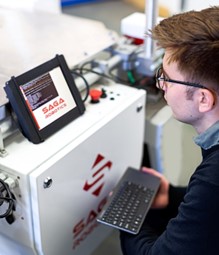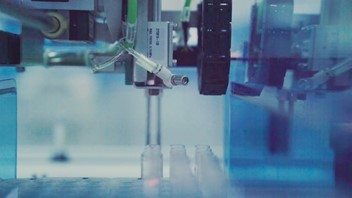John R. Callen is the CEO of MedRehab Alliance . In the following article, Callen discusses the growing use of AI in healthcare, and how AI is helping patients and doctors alike.
At this moment, the Mayo Clinic in Rochester, Minnesota, is partnering with Endoluxe, an imaging company to research how artificial intelligence (AI) may help treat bladder cancer.
At the same time, the U.S. Food and Drug Administration has approved a tool powered by AI to pinpoint heart failure that was developed at the Mayo Clinic.
And not far away, in Fort Wayne, Indiana, Parkview Health is working with NeuroBell to study how AI-based equipment could help detect seizures in babies.
John R. Callen of MedRehab Alliance says that the future of healthcare may rest in the hands of software, algorithms, and machine learning. AI-based technology could improve the way we diagnose disease — and treat it.
For the healthcare industry, AI is nothing short of revolutionary.
John R. Callen on the Rise of AI
While much of healthcare AI is in its infancy, the market is anticipated to skyrocket. In 2019, the global market was valued at $2.4 billion. But by 2021, the value of the global market of AI in healthcare rose to $10.4 billion.
It’s expected to grow nearly 40% between 2022 and 2030. In 2025, the market is projected to be worth over $31 billion.
Why are artificial intelligence and machine learning being strongly embraced? John R. Callen of MedRehab Alliance says that it’s a combination of healthcare industry leaders always looking to cut costs, but also significant proof that it works, especially as a way to diagnose chronic diseases early.
The more AI is used in healthcare, the better the digital information that’s used to guide it. AI is increasingly seen as the best tool healthcare may use to increase patient communication, improve efficiency overall, and make the diagnostic process move faster explains Callen.
A strong example of the power of Ai in healthcare is the number of companies investing in technology that is not completely healthcare focused. Microsoft recently announced that it will spend $20 million to improve the use of AI in research related to COVID-19.
The Benefits of Healthcare AI
John R. Callen of MedRehab Alliance reports that AI in healthcare is most effective when it partners with human expertise and decision-making. ASI is designed to support the judgment of humans — not replace it.
Since being introduced around 20 years ago, AI has steadily shown its potential in numerous ways. Through AI, doctors have been able to search for thousands of medical resources through web databases. AI can provide essential data to make a diagnosis and make it early more accurate.
For someone who has multiple symptoms, AI can help doctors and other medical professionals make the best decisions based on physical and genetic characteristics.
By working in real-time, John R. Callen says that AI has become an exciting tool for medical researchers who are relying on it to get the most accurate and up-to-date information through a collection of physical examinations, demographics, and medical device readings.
This detailed background through AI sets the stage for improved treatments.
Machine learning techniques, which are based on educated predictions on patterns within huge amounts of data, implemented through AI have already proven successful in determining patient outcomes.
One recent breast cancer detection and diagnosis study found that AI contributed to a more specific outcome indicator for tumors.
 Prominent Examples of AI in Healthcare
Prominent Examples of AI in Healthcare
As more medical professionals integrate AI into daily healthcare procedures, the future of its refined use remains to be seen. But it’s already making waves.
John R. Callen says that AI in healthcare is being used to create algorithms that may indicate certain health risks within certain segments of the population, such as people of color or the elderly. Doctors at the University of Pennsylvania used AI technology to monitor numerous variables to predict septic shock or sepsis 12 hours before each could be displayed in patients.
AI tools are starting to be used in everything from genome-based diagnostics to real-time chat boxes where patients can communicate with a doctor or hospital right away online.
Magnetic resonance imaging and computer tomography can use machine learning tools to better analyze images that may indicate the slightest hint of a medical issue.
AI techniques may one day guide an app that can screen for cancer just by evaluating chest X-rays or tracking and analyzing vital statistics such as blood pressure and heart rates.
John R. Callen of MedRehab Alliance explains that AI also eliminates the potential for human error. Researchers at Tulane University used AI to speed up the cancer diagnosis process by analyzing scans of tissues.
The data was complex — 13,000 images of cancer from over 8,000 patients from around the world. Machine learning was more accurate in diagnosis compared to humans.









